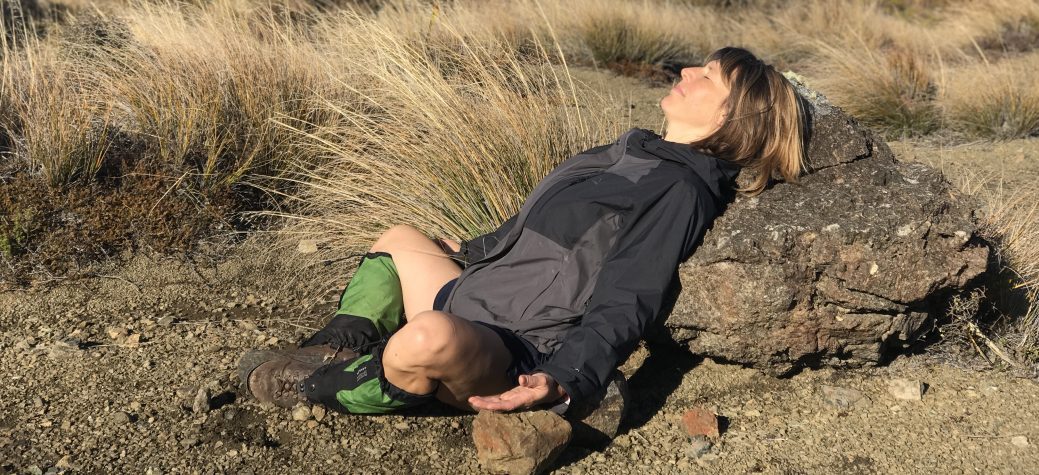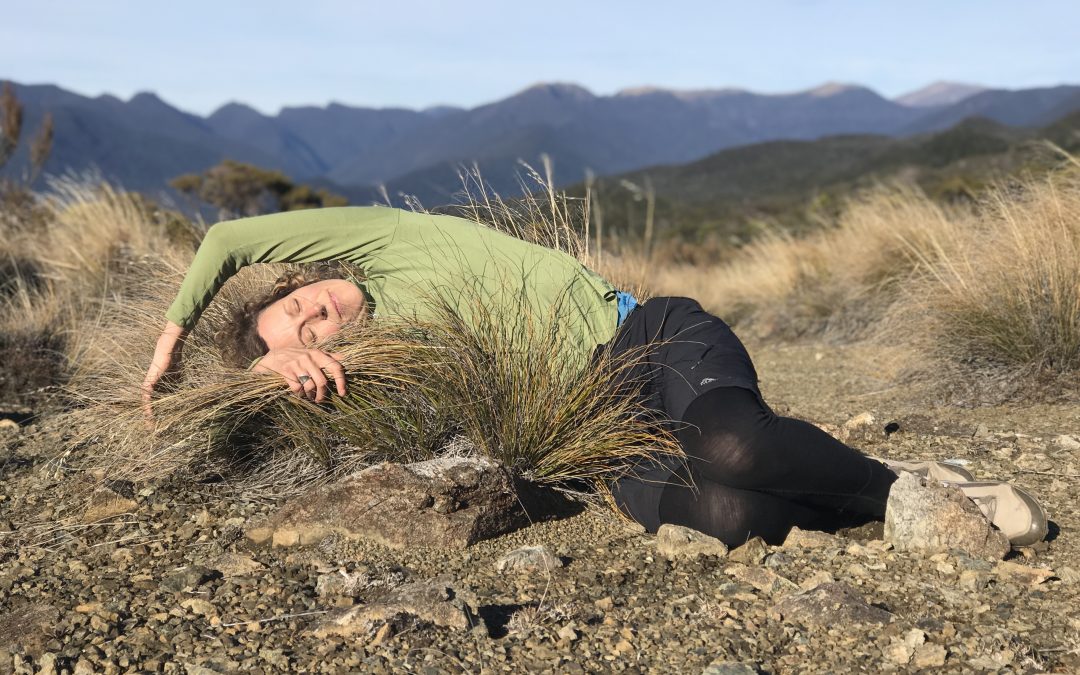Just being outdoors elicits a sense of presence. When I’m in the moment, a feeling of rest simply and easily arrives not to mention the restoration of diaphragmatic breathing and connection to Spirit. These benefits that we receive from being in nature and this innate tendency that we have to be at one with it is known as Biophilia, described by the German psychoanalyst, Erich Fromm as “the passionate love of life and of all that is alive.”
I’ve just returned from a glorious hike with friends in the hills behind Nelson. I feel very grateful to live in a place where I’m able to access nature at the drop of a hat. Getting outdoors, especially with good mates has such a beneficial effect on my Wellbeing that I see it as a vital part of my self-care ritual.

And apparently even if you can’t physically make it out into the hills or any natural place of beauty, just looking at images of nature has a positive impact. In a research study conducted on 120 subjects each participant observed visuals of either a natural landscape or an urban environment after having first viewed a stressful movie. The data obtained from this survey revealed that participants who looked at the pictures of natural settings had lower scores on stress scales as well as healthier heartbeat and pulse counts, showing the activation of the parasympathetic nervous system. In addition, the stress recovery rate was much higher in participants who got a natural exposure than the ones who spent time looking at the urban scenes. Taking this information on board, I’m hoping that the images that are a part of this article which include images of nature as well as people resting in calm looking body shapes, will have a double stress relieving impact!

Author Valentine Seymour has carried out much research on the human to nature relationship and its impact on health. What much of the research literature reveals is that staying close to nature improves physical conditions like hypertension, cardiac illness, and chronic pain. There are positive impacts on mental and social health too and has shown to help individuals suffering from attention and mood disorders, as well as those living with extreme anxiety.
But beyond the physical, mental and social benefits, the research also confirms that nature-friendly people are more environmentally conscious and responsible making positive contributions to the fight on climate change. As the New Zealand government announces it’s new Zero Carbon Bill to radically reduce our greenhouse gas emissions by 2050, our over-consumption habits will need to change on personal, industrial and agricultural levels. For may of us it feels like and insurmountable and depressing task and yet in a recent article, Max St.John, teacher of Daoist martial arts and Wellbeing blogger, invites us to find a calm approach to the threats of climate change.
“Many of us are being constantly bombarded by facts, figures and narratives that tell us our days on earth are numbered, that it’s our fault and that it’s also largely out of our control. This is impossible for any human being to process and still remain calm. Things that present a threat trigger us into a stressed state. When we feel helpless in the face of that threat, everything gets much worse for us. In this stressed state we change physiologically — we become more problem-focused and look for other people or things to blame. This is a function of our evolutionary development. In more precarious times it’s been critical in keeping us alive but in this instance it’s not helping.”
As we face complex, systemic challenges, we need to be able to bring our full capacity and creativity to the process as well as see and hold multiple perspectives and engage in healthy conflict. What he suggests is that we need to keep connecting to the tools and activities that keep us grounded and calm without blaming others. He goes on to say:
“See that looking after your mental health, staying calm, being open-hearted is the most subversive act of our time.”

This is because when we come from a perspective of presence we no longer need to judge others with anger and blame but rather start showing up fully acknowledging our family, neighbours, community, nation and world population with kindness and understanding. We create the conditions for a settled nervous system that can still take part in protest but without the anger and anxiety taking over. As a martial artist, ex-doorman and someone who’s been in a few violent confrontations, Max St.John can tell you with certainty that if there is a fight, it’s not the angry, anxious person who wins but the very calm one who can keep a sense of perspective and understanding that they need to get everyone involved to get to a better place.
In light of these recent articles that I have been drawn to around Wellbeing and the Environment, I come back again and again to urging myself and you to get out into nature whenever you can. See it as a way of connecting not only to your personal sense of Wellbeing and love of nature but also for feeling yourself as an interconnected being that can find the motivation needed to support social and political ways forward to saving ourselves and this beautiful earth that we live on. And whilst you are out there do look for an inviting rock or moss mound to lie and have a rest upon. It will bring you back to your ground of ‘Being’ from which to engage in healthy ‘Doing’.


